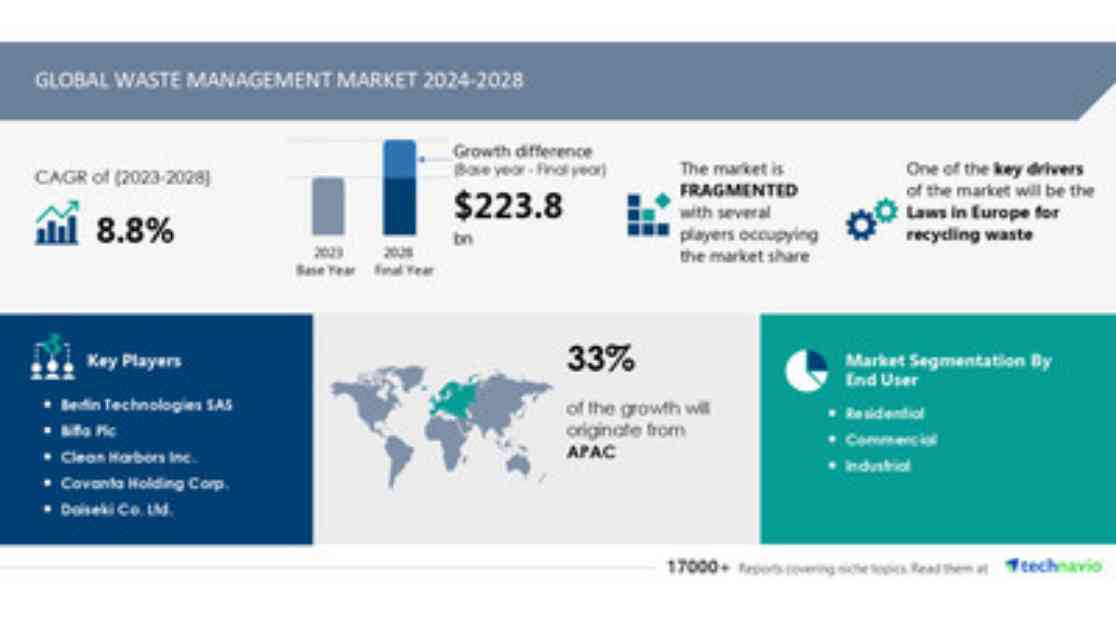The waste management market is expected to experience significant growth in the coming years, with an estimated increase of USD 223.8 billion from 2024 to 2028. This growth is driven by the implementation of recycling laws in Europe, which are encouraging the adoption of renewable cleaning practices. However, the disposal of biomedical waste poses a challenge due to the high capital investment required.
Key players in the market include Bertin Technologies SAS, Biffa Plc, Clean Harbors Inc., Covanta Holding Corp., and many more. These companies are at the forefront of driving innovation and sustainability in waste management practices.
One of the main drivers of market growth is the increasing demand for eco-friendly cleaning processes in industries. Technologies such as activated water cleaning, high-flow fluid extraction, and steam vapor technology offer benefits like improved health and safety, cost reduction, and simplified cleaning operations. As businesses prioritize sustainability and worker well-being, the demand for green cleaning solutions is expected to drive market expansion.
Additionally, growing environmental concerns and regulations are shaping the waste management market. Companies are focusing on circular economy principles, waste reduction, and recycling initiatives. The use of technology, such as smart bins and waste sorting systems, is on the rise to enhance efficiency and sustainability. Government policies and initiatives are also creating opportunities for businesses to align with regulatory requirements and promote eco-friendly solutions.
The biomedical waste market faces challenges due to the high costs associated with managing hazardous healthcare waste. Specialized facilities, skilled workforce, and significant capital investment are required for effective waste disposal. While incineration offers benefits like complete waste removal and microorganism destruction, challenges like high capital requirements and odor issues hinder market growth. Finding cost-efficient and sustainable management solutions for the large volume of biomedical waste generated globally is crucial.
In addition to biomedical waste challenges, the waste management market as a whole faces obstacles in implementing effective solutions. Urban areas are experiencing a surge in waste generation, requiring proper segregation and disposal of various waste types. Cost-effective waste management solutions are in demand as businesses seek to optimize their operations. Staying updated with evolving regulatory requirements and leveraging technology and automation are essential to improve efficiency and reduce labor costs in waste management processes.
The waste management market encompasses various sectors such as environmental sustainability, public health, transportation, processing, recycling, and international organizations’ roles in promoting circular economy principles. Repurposing materials from municipal solid waste, sewage, and industrial waste streams is crucial for reducing CO2 emissions and minimizing resource extraction. The market is expected to continue growing as organizations prioritize sustainability and compliance with environmental regulations.

